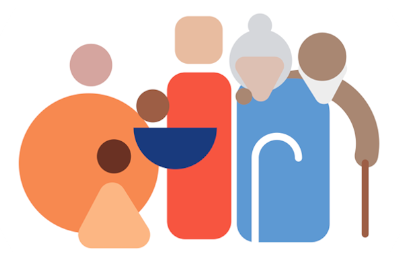The aim of the epSOS Project is to provide an interoperability platform at the European level for healthcare data, and on top of this platform realize the exchange of electronic patient summary and prescription documents among the European countries. Supported by the FP7 ICT Policy Support Programme (PCP), epSOS is an enormous and prestigious project composed of 50 beneficiaries from 25 European countries. The first phase of the project started in July 2008. Together with the Turkish Ministry of Health, SRDC became part of the epSOS Project in its second phase starting January 2011.
During the project, many European countries have realized cross-border patient data exchange on top of their actual national/regional infrastructures. The project is completed as of June 2014, however its outcomes and impact are prolonged through many new projects, such as e-SENS, EXPAND and Trillium Bridge.
Basically, epSOS targets the availability of a travelling European citizen’s healthcare data in the European countries he is visiting. Such data is already available in many European countries via the regional and national healthcare information systems. The motivation of the epSOS project is to further benefit from this data by making it accessible to authorized healthcare professionals all over Europe to provide better and accurate care to the patient. As the most vital healthcare data to be exchanged cross-border, electronic patient summary and prescription documents have been identified.
For example, when an Austrian citizen visiting Turkey goes to a healthcare provider for a health problem, before applying any medical procedure, with the consent of the Austrian citizen the responsible physician is able access the basic healthcare data (e.g. diagnoses, allergy, surgery, medication history; medical device usage, vital signs) of the citizen normally defined in German, in Turkish language within seconds; and this way before arriving to any decision the physician has access to necessary data.
Although SRDC became part of epSOS in its second phase starting from January 2011, we have provided significant contributions to the project with our national and international activities. Our achievements can be summarized as follows:
- The first and only open source implementation of the epSOS interoperability specifications for cross-border patient data exchange with our internal resources in 2011, which turned into a multi-national open source effort named OpenNCP in 2012, followed by donation of our own implementation. This article entitled “Young Turks” presents a brief summary of our achievements in this respect.
- Implementation of the Turkish pilot for cross-border patient summary exchange on top the National Health Information System twice; first on top of the first version in SağlıkNet (“HealthNet”), and second in SağlıkNet 2.0, which is an improved system developed from scratch
- Exchange of electronic patient summary documents with tens of European countries
- Integration of Turkish epSOS Pilot with our Personal Health Record system eSağlıkKaydım
- Leading the Validation Work Package
- Revising the epSOS Testing Strategy to make it compliant with the CEN Global Interoperability Test Bed (GITB) (HREF: GITB page) initiative, and cooperation with IHE-Europe for update of Gazelle testing tools according to this revised Testing Strategy
- Coordinating the interoperability testing activities of all epSOS nations for cross-border electronic patient summary and prescription exchange. There are two types of these testing activities: (i) Projectathons that are organized physically in conjunction with the IHE-Europe Connectathons, and (ii) online Pre-Pilot Testing slots.
- Supporting with our expertise a number of European countries in their national pilot implementation
- Contribution to requirements analysis and design activities at the international level
| 1. | Austrian Federal Ministry of Health | Austria |
| 2. | ELGA | Austria |
| 3. | Plate-forme eHealth | Belgium |
| 4. | RECIP-E VZW | Belgium |
| 5. | Integrating the Healthcare Enterprise-Europe AISBL | Belgium |
| 6. | Hrvatski Zavod Za Zdravstveno Osiguranje | Croatia |
| 7. | Internet Access to Patient Electronic Health Record | Czech Republic |
| 8. | Danish National Board of e-Health | Denmark |
| 9. | Ministeriet for sundhed og forebyggelse | Denmark |
| 10. | Danish National Health Data Network | Denmark |
| 11. | Eesti e-Tervise Sihtasutus | Estonia |
| 12. | THL | Finland |
| 13. | French Ministry of Health | France |
| 14. | ASIP Santé | France |
| 15. | German Federal Ministry of Health | Germany |
| 16. | Fraunhofer ISST | Germany |
| 17. | Gematik Gesellschaft für Telematikanwendungen der Gesundheitskarte mbH | Germany |
| 18. | Zentralinstitut für die kassenärztliche Versorgung | Germany |
| 19. | empirica Gesellschaft für Kommunikations und Technologieforschung mbH | Germany |
| 20. | Pharmaxis | Greece |
| 21. | Aristotelean University of Thessaloniki | Greece |
| 22. | Egeszsegugyi Strategiai Kutatointezet | Hungary |
| 23. | Region of Lombardy | Italy |
| 24. | Lombardia Informatica | Italy |
| 25. | LUNA | Luxembourg |
| 26. | Ministry for Health | Malta |
| 27. | Helsedirektoratet | Norway |
| 28. | Narodowy Fundusz Zdrowia | Poland |
| 29. | Instytut Logistyki I Magazynowania | Poland |
| 30. | PTNA | Portugal |
| 31. | SPMS | Portugal |
| 32. | Universidade De Aveiro | Portugal |
| 33. | Institut Za Varovanje Zdravja Republike Slovenije | Slovenia |
| 34. | National Health Information Centre | Slovakia |
| 35. | Spanish Ministry of Health and Consumer Affairs | Spain |
| 36. | Fundació TicSalut Catalonia | Spain |
| 37. | Regional Healthcare Service of Andalucia | Spain |
| 38. | Regional Healthcare Service of Castilla La Mancha | Spain |
| 39. | Catalan Agency for Health Information and Assessment and Quality | Spain |
| 40. | Agencia Valenciana De Salud | Spain |
| 41. | Servei De Salut De Les Illes Balears | Spain |
| 42. | Swedish Association of Local Authorities and Regions | Sweden |
| 43. | Swedish Ministry of Health and Social Affairs | Sweden |
| 44. | Les Hopitaux Universitaires De Geneve | Switzerland |
| 45. | Federal Office of Public Health | Switzerland |
| 46. | National IT Institute for Healthcare in the Netherlands | Netherlands |
| 47. | Dutch Ministry of Health and Welfare and Sport | Netherlands |
| 48. | Türkiye Cumhuriyeti Sağlık Bakanlığı | Turkey |
| 49. | SRDC | Turkey |
| 50. | Department of Health | United Kingdom |









